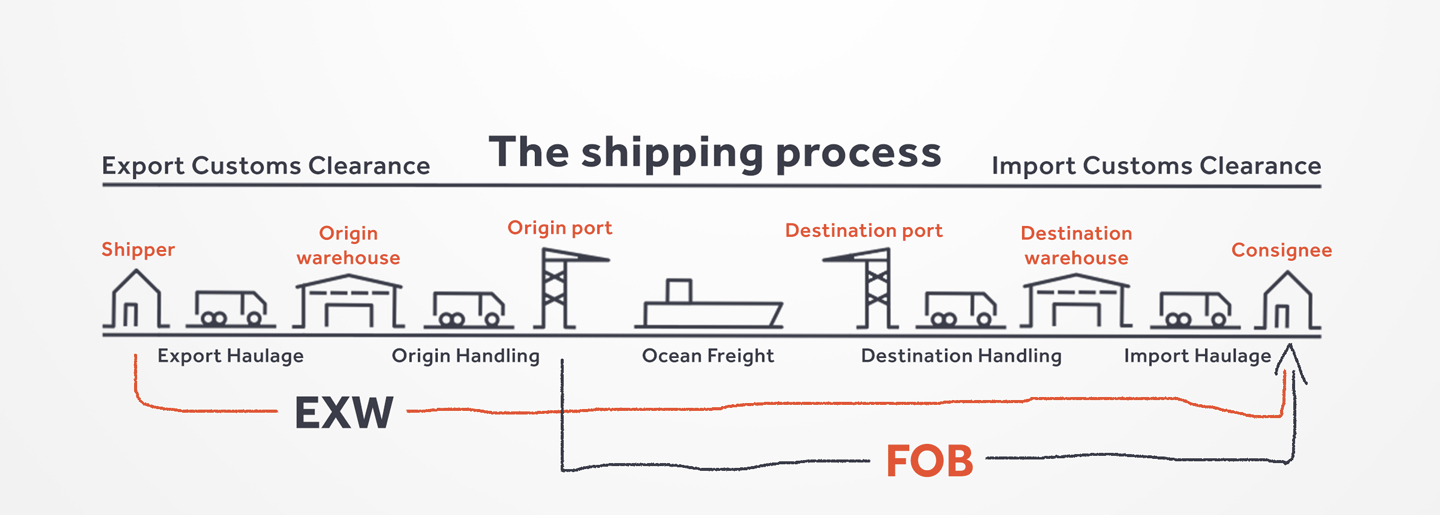
Welcome to the dynamic world of shipping, where goods traverse the globe with speed and precision. Whether you're an individual looking to import goods from China or a business seeking efficient ways to export products, navigating the intricate network of shipping options can be quite the voyage. From sea shipping to air freight, package consolidation to fulfillment services, finding the right forwarder is key to ensuring smooth sailing in your logistics endeavors.
In today's interconnected world, the role of shipping and logistics has become more crucial than ever. Businesses rely on reliable and cost-effective shipping solutions to stay competitive in the global marketplace. With a plethora of options available, from China shipping to Singapore forwarders, understanding the logistics landscape can be overwhelming. This article aims to demystify the world of shipping, providing insights into key concepts such as sea freight, air shipping, and the importance of choosing the right forwarder for your specific needs. Let's set sail and explore the exciting realm of international shipping together.
Types of Shipping Services
There are various types of shipping services available to cater to different needs when it comes to moving goods across the globe. Sea shipping is a popular choice for transporting large quantities of goods over long distances, offering cost-effective options for businesses looking to import or export products.
For those seeking faster delivery times, air shipping provides a quicker alternative to sea freight. Air freight services are ideal for transporting high-value goods or items that require expedited delivery, although they often come at a higher cost compared to sea freight.
Some companies opt for a combination of both sea and air freight to optimize their shipping strategy. This can involve utilizing sea shipping for bulkier items and air shipping for time-sensitive or high-priority shipments, offering a balance between cost-effectiveness and speed.
Choosing the Right Forwarder
When it comes to selecting the ideal forwarder for your shipping needs, it is essential to consider various factors. Firstly, assess the forwarder's experience in handling sea shipping, air freight, and package consolidation. A well-established forwarder with a proven track record can provide valuable insights and efficient solutions for your import and export goods.
Moreover, the geographical expertise of the forwarder plays a crucial role in ensuring smooth shipping operations. Whether you are dealing with China shipping or seeking a Singapore forwarder, opt for a service provider that has a strong network and understanding of the specific regulations and logistics involved in each region. This expertise can streamline the process and minimize any potential delays or disruptions.
Lastly, weigh the cost-effectiveness of the forwarder's services against the quality and reliability they offer. While competitive rates are attractive, it is equally important to prioritize factors such as on-time delivery, communication transparency, and overall customer satisfaction. By striking the right balance between cost and service quality, you can partner with a forwarder that enhances your shipping experience and fosters long-term success.
Benefits of Package Consolidation
Shipping companies offer package consolidation services, which can be highly advantageous for individuals or businesses with multiple shipments. Consolidating packages allows for cost savings as the total volume shipped is reduced, leading to lower overall shipping expenses. It also simplifies the shipping process by combining multiple packages into a single shipment, streamlining the logistics involved.
Another benefit of package consolidation is enhanced efficiency. By consolidating packages, it reduces the risk of lost or damaged items during transit. This ensures that all goods are securely bundled together, minimizing the chances of any items getting misplaced or damaged along the way. This added layer of protection gives peace of mind to customers who are shipping valuable goods.
Package consolidation provides convenience to shippers by centralizing the handling and tracking of shipments. Instead of managing several individual shipments, consolidating packages into one shipment makes it easier to keep track of the overall shipping process. This simplification saves time and effort, enabling shippers to focus on other aspects of their business with the assurance that their shipments are being efficiently managed.
